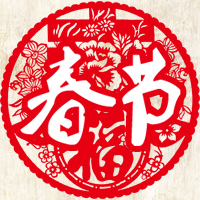 Chinese statuary holidays: New Year’s Day ( January 1st , one day off ); Spring Festival ( Lunar New Year, 3 days off, namely, New Year’s Eve , the Lunar New Year’s Day and the following day) ; Qing Ming Festival (on the day of Qing Ming, one day off ) ; International Women’s Day ( March 8th , women have half a day off ); Arbor Day (March 12th ) ; International Labor Day ( May 1st , a day off ) ; Chinese Youth Day ( May 4, half a day off for all the teenagers above 14) ; Dragon Boat Festival (the 5th day of the 5th lunar month, one day off ) ; International Nurses’ Day (May 12th ); Children’s Day ( June 1st, children under the age of 14 have one day off) ; Anniversary of the Founding of the Chinese Communist Party ( July 1st) ; People’s Liberation Army day ( August 1st, soldier in active service have half one day off ); Teachers’ Day ( September 10th ) ; Mid-Autumn Festival ( Chinese Mid-Autumn day, one day off ) ; National Day ( October 1st, 3 days off) ; Reporters’ Day (January 8th).
Chinese statuary holidays: New Year’s Day ( January 1st , one day off ); Spring Festival ( Lunar New Year, 3 days off, namely, New Year’s Eve , the Lunar New Year’s Day and the following day) ; Qing Ming Festival (on the day of Qing Ming, one day off ) ; International Women’s Day ( March 8th , women have half a day off ); Arbor Day (March 12th ) ; International Labor Day ( May 1st , a day off ) ; Chinese Youth Day ( May 4, half a day off for all the teenagers above 14) ; Dragon Boat Festival (the 5th day of the 5th lunar month, one day off ) ; International Nurses’ Day (May 12th ); Children’s Day ( June 1st, children under the age of 14 have one day off) ; Anniversary of the Founding of the Chinese Communist Party ( July 1st) ; People’s Liberation Army day ( August 1st, soldier in active service have half one day off ); Teachers’ Day ( September 10th ) ; Mid-Autumn Festival ( Chinese Mid-Autumn day, one day off ) ; National Day ( October 1st, 3 days off) ; Reporters’ Day (January 8th).
China’s major traditional festivals: the Spring Festival, Lantern Festival, Qingming Festival, Dragon Boat Festival, Mid-Autumn Festival. Besides ethnic minorities have also retained their own traditional festivals, such as the Water Festival of the Dai Nationality, Nadam Fair of the Mongolian Nationality, Torch Festival of the Yi Nationality, Danu Festival of the Yao Nationality, Sanyue Street of the Bai Nationality, Song Fair of the Zhuang Nationaltiy, Cangli Nian and Ongkor (Bumper Harvest) Festival of the Tibetan Nationality, and the Flower Jumping Festival of the Miao Nationality.





